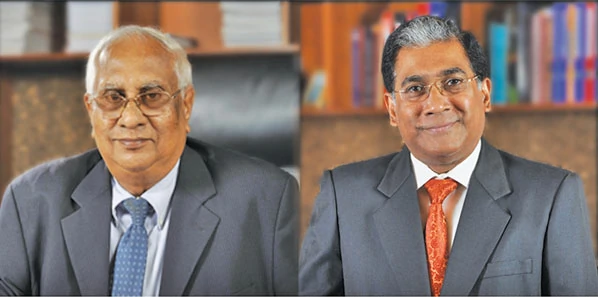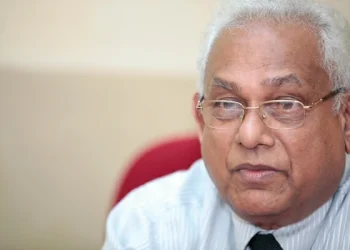
NDB Group’s sustainable core banking profits increased by 34 percent during the year 2010, recording a Group Profit Attributable to Shareholders (PAS) of Rs 2 Bn, an increase of 28 percent, with a Group ROE of 13.67 percent excluding exceptions. With its roots in cash flow based projects and infrastructure financing and having positioned as a licensed commercial bank just a decade ago, NDB Group is now on a springboard to leap into greater heights riding high on its competitive advantage – knowledge based banking.
The unprecedented portfolio growth of 27 percent, with loan delinquencies maintained at an all time low of 1.9 percent, one of the lowest in the Industry, a healthy and well structured balance sheet, and an affirmed rating of “AA (lka)” by Fitch Ratings provides its stakeholders the much desired comfort of their investment and future growth potential. In fact the loans to total assets ratio, which increased by 10 percent to 68 percent in 2010, makes it evident that the new loans created with the liquid funds will now reap higher returns.
Commenting on the 2010 performance, Russell de Mel, Chief Executive Officer of NDB Bank stated the performance of the Bank as well as the Group during the previous year (2009) was highlighted by significant capital gains made from trading in Treasury Bills and Bonds which was influenced by falling interest rates and also by one off equity gains. The Bank’s philosophy is that whilst seizing these opportunities, thus maximising gains and returns, what is important is to sustain the core banking profits. Therefore, in 2010 the Bank attempted to create a strong business model by improving its core banking income that is sustainable in the long run.
Though on an as is basis, the Bank’s Profit Before Tax of Rs 3.4 Bn, which is almost flat against 2009, reflects a drop of 6 percent at Profit After Tax level due to substantial capital gains of 2009 which were exempt from tax. It is worthy to note that there has been significant improvement in the core banking profits throughout the quarters as well, which has had a direct impact on the improvement in the full year returns, thus confirming that its core business is sustainable under the emerging economic conditions.
Despite falling interest rates and higher returns on alternate investments the Bank’s deposit base recorded a healthy growth of 19 percent from Rs 49 Bn to Rs 59 Bn during the year against an industry growth of 15.6 percent. It is noteworthy that the Bank’s Current and Savings Accounts (CASA) ratio has also improved from 23 percent to 29 percent with the build up of granular savings and cash management offerings.





